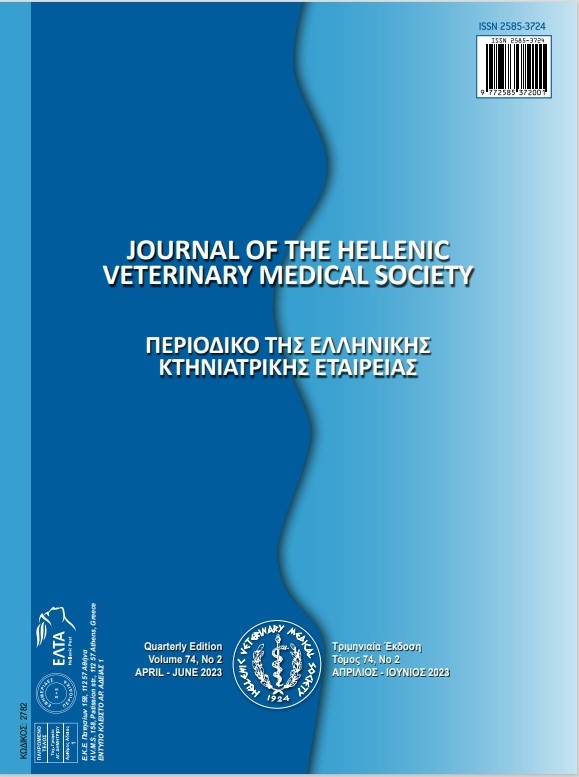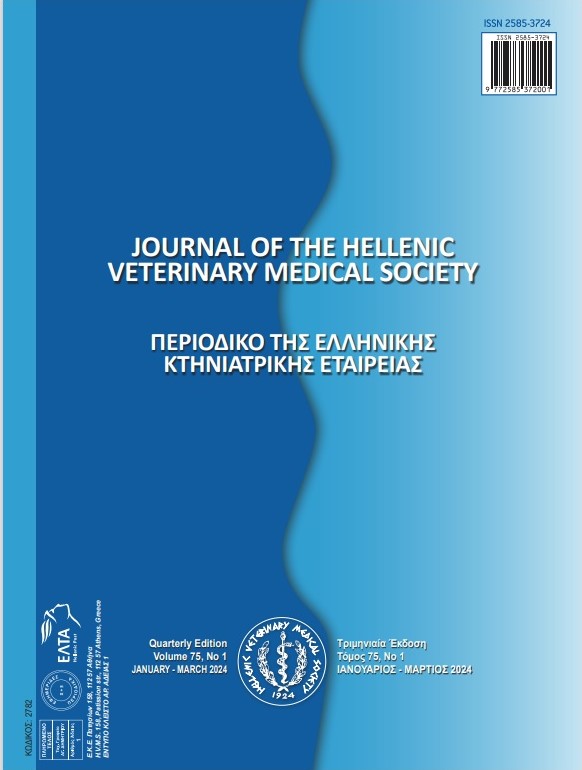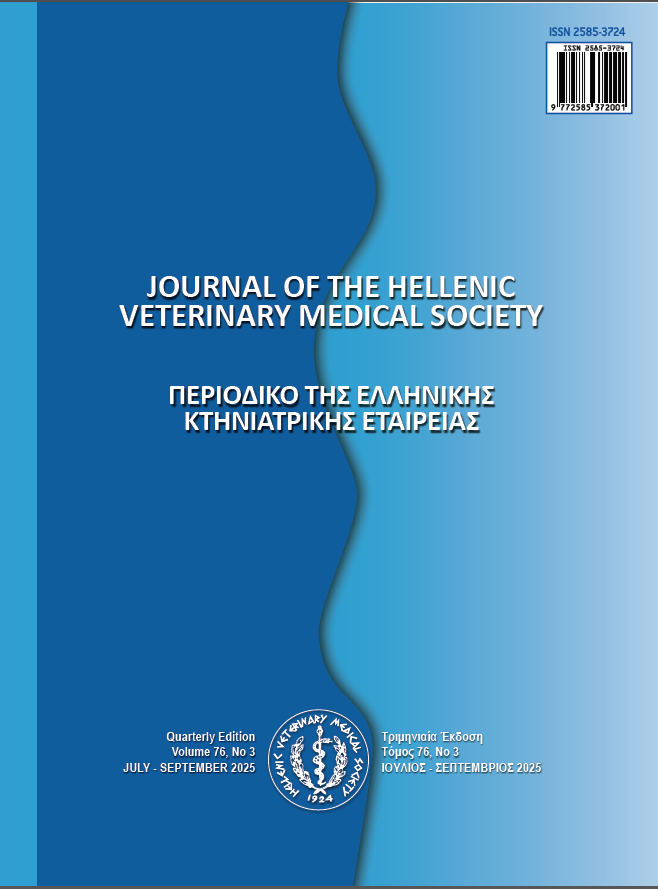Strangles in a stallion in southeast Nigeria: clinical and pathological report

Abstract
ABSTRACT. Streptococcus equi subspecies equi is the causative agent of strangles, a highly contagious mucopurulent upper respiratory tract infection of horses. This report describes the clinicopathologic findings of a fatal case of pulmonary form of strangles in a two-and-half-year-old stallion presented at a Veterinary Teaching Hospital in Southeast Nigeria. Treatment was attempted in quarantine using high doses of procaine penicillin; but it was unsuccessful. The clinical signs observed in the affected horse include a left unilateral supra-orbital swelling containing purulent matter, which progressed to a chronic intractable exudative pus. Anaemia with leukocytosis (due to neutrophilia) were observed in the haematologic parameters. Gross and histologic lesions were multifocally extensive abscessing necrotic lymphadenitis and bronchopneumonia with inflammatory oedema and infiltrate of polymorphonuclear leukocytes.
Article Details
- Zitationsvorschlag
-
Okolo, C., Igwe, A., Ugochukwu, I., Omeke, J., Anyogu, D., Ogbuanya, K., Nweze, N., & Shoyinka, S. (2023). Strangles in a stallion in southeast Nigeria: clinical and pathological report. Journal of the Hellenic Veterinary Medical Society, 74(2), 5853–5862. https://doi.org/10.12681/jhvms.28672 (Original work published 4. Juli 2023)
- Ausgabe
- Bd. 74 Nr. 2 (2023)
- Rubrik
- Case Report

Dieses Werk steht unter der Lizenz Creative Commons Namensnennung - Nicht-kommerziell 4.0 International.
Authors who publish with this journal agree to the following terms:
· Authors retain copyright and grant the journal right of first publication with the work simultaneously licensed under a Creative Commons Attribution Non-Commercial License that allows others to share the work with an acknowledgement of the work's authorship and initial publication in this journal.
· Authors are able to enter into separate, additional contractual arrangements for the non-exclusive distribution of the journal's published version of the work (e.g. post it to an institutional repository or publish it in a book), with an acknowledgement of its initial publication in this journal.
· Authors are permitted and encouraged to post their work online (preferably in institutional repositories or on their website) prior to and during the submission process, as it can lead to productive exchanges, as well as earlier and greater citation of published work.




